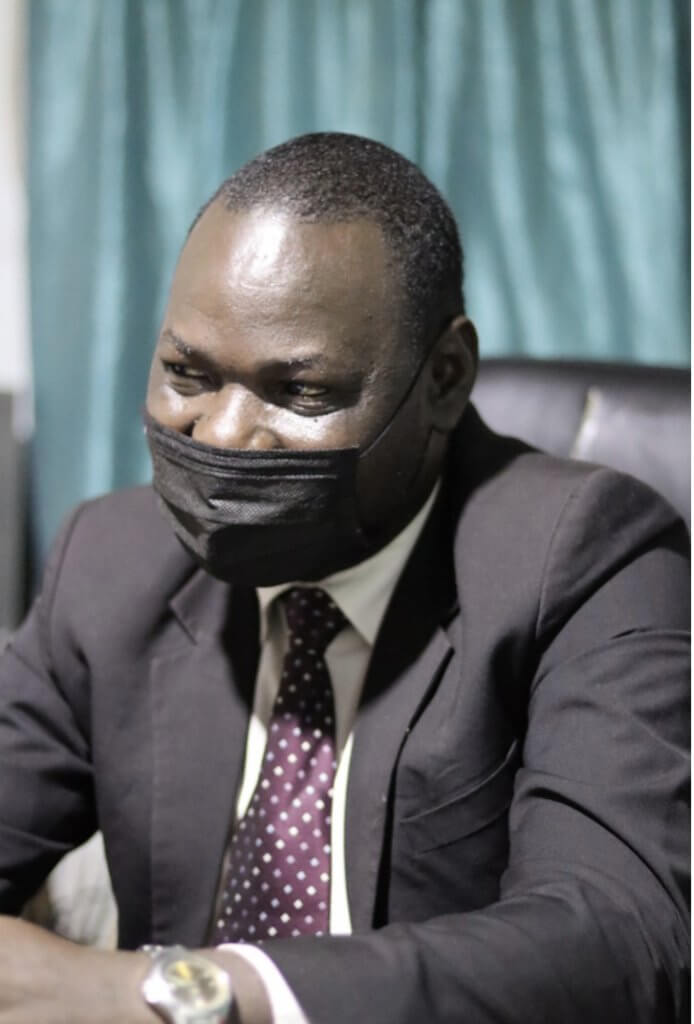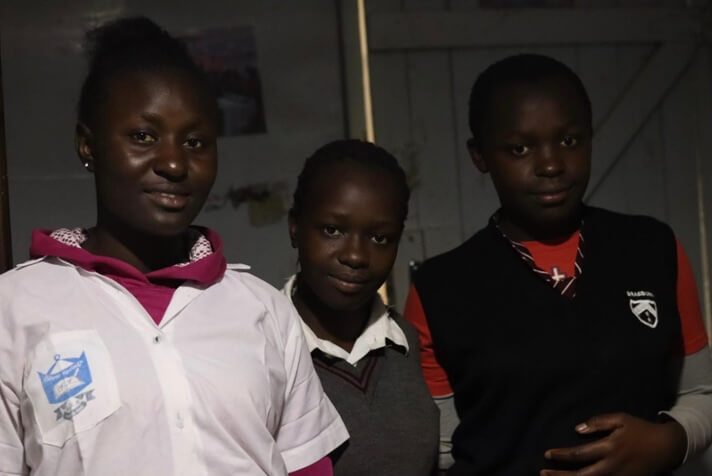In Kenya, around sixty per cent of the urban population live in slums or other informal settlements. The majority of them are based in Kibera, which is not only the biggest slum in the country but also the largest urban slum in Africa. In Kibera, hundreds of thousands of women and girls do not have access to feminine hygiene products such as pads or tampons. Poverty in the slum is so extreme that families have to prioritise other expenses and purchase food rather than sanitary products. In turn, some women and girls improvise when trying to stop the bleeding and engage in practices that put their lives at risk. Some do not use anything at all during periods, which leads to them experiencing extreme discomfort and having to miss work or school. On top of that, the stigma of menstruation, caused by harmful cultural norms and lack of education, is widely present in the settlement, making girls ashamed of something that is simply part of their biological rhythm.
Women and girls living in the Kibera slum do not realise how harmful the mismanagement of menstruation can be to their health. Isaiah Nyongesa, the director of Silver Spring Secondary School in Kibera, said that ‘not understanding why periods happen and how to deal with them is one of the biggest challenges for females living in the slum’. He also added that the problem is so extreme that some girls even decide to drop out of school altogether. Many of them would rather miss out on the opportunity to get an education rather than have to deal with challenges associated with menstruating in the slum. The Silver Spring Secondary School was established with the help of the United Cultural Empowerment & Social Community Organization (UCESCO), a charity committed to empowering people living in Nairobi’s slums and helping them get out of poverty.

Isaiah Nyongesa, the director of Silver Spring Secondary School in Kibera.
In Kenya, a pack of pads costs around $1. In Kibera, on average, people have $2 – $3 a day to spend. Hence, parents often cannot afford to buy sanitary products for their daughters. The school director said that sometimes to get closer to the girls they like, young men offer that they will pay for their sanitary products. In exchange, however, they expect sexual favours. Consequently, the rates of early marriages and unwanted pregnancies in Kibera are very high.
When asked about their experiences with managing periods, three female students from the Silver Spring secondary school, all aged 16, said that many girls use toilet paper, clothes, or even feathers when menstruating. Moreover, not knowing how to manage the bleeding, some engage in unhygienic practices. For example, it is not uncommon for women to use the same pad for several days or share already used pads with other women. Doing so is particularly dangerous and can lead to them catching HIV.

Three female students from the Silver Spring secondary school, all aged 16.
‘Managing our periods in the slum is very difficult’, said one of the pupils, explaining that not only are the sanitary products expensive and challenging to get, but boys often laugh at girls for menstruating. For teenagers, being shamed for something that is out of their control negatively affects their mental health. In turn, girls frequently suffer from depression and low self-esteem, explained Isaiah Nyongesa.
Ending period poverty in Kenya is challenging as it requires changing the mindset of entire social groups. The key to solving the problem is normalising menstruation by engaging both boys and girls. That would allow to end the stigma around periods, preventing menstruating girls from being alienated by their peers. Teaching girls how to deal with their period and how to maintain good hygiene while menstruating is also essential.
With the help of UCESCO, the Silver Spring Secondary School is undertaking steps to help the girls of Kibera affected by period poverty. When funds allow, they buy pads and girls that any girl can get for free. They also organise empowerment sessions to help girls understand why they menstruate and how it is not a reason to be ashamed.
Empowering girls to manage their periods better and maintain good menstrual hygiene is necessary to achieve gender equality in Kenya. Sadly, however, the organisations operating in the Kibera slum do not receive much assistance from the Kenyan government. They are entirely reliant on donations, so they face many financial constraints. Still, their ambitions are big. When asked about the next steps in the endeavour to end period poverty in Kibera, the school’s director said they would like to launch a programme giving girls the skills to make their own reusable pads. Thanks to the people who dedicate their lives to helping those less fortunate in life, these girls can hope for a better future.
About the author:
Katarzyna Rybarczyk is a Political Correspondent for Immigration News, a media platform affiliated with Immigration Advice Service. She is currently spending a month volunteering with vulnerable communities in the Kibera slum.





